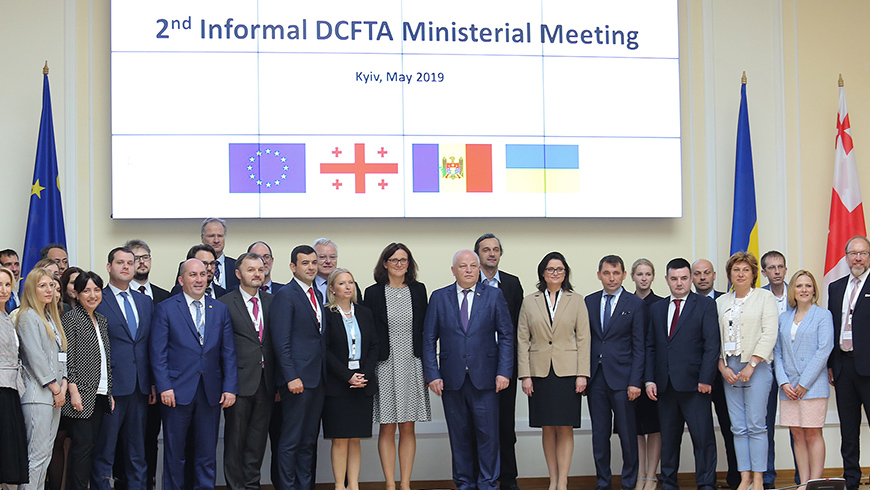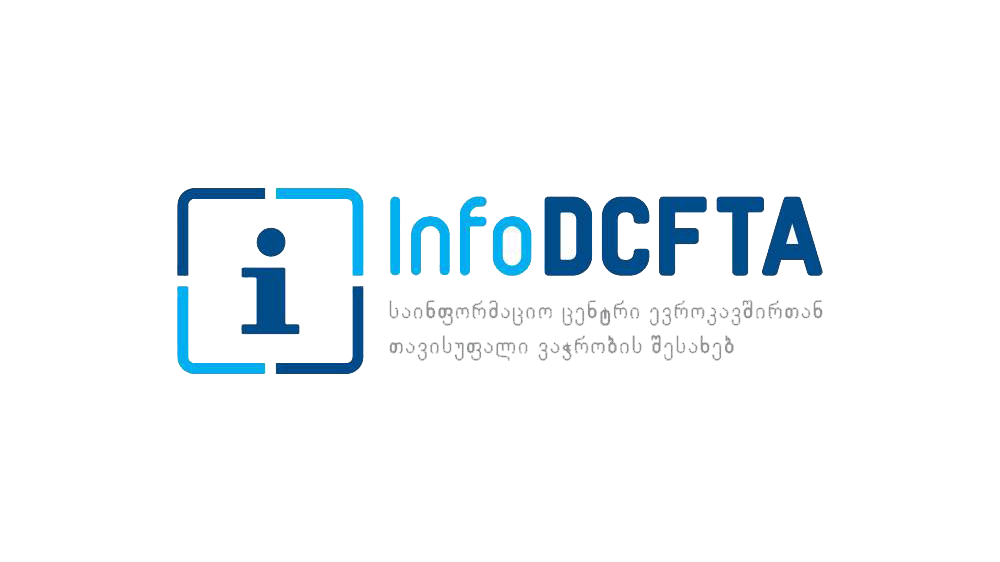Latest news

The 2nd informal DCFTA Ministerial meeting held in Kiev
Today, H.E. Ms. Natia Turnava, Minister of Economy and Sustainable Development of Georgia met in Kyiv with H.E. Ms. Cecilia Malmström, EU Commissioner for Trade, H.E. Mr. Stepan Kubiv, First Vice Prime Minister - Minister of Economic Development and Trade of Ukraine, and H.E. Mr. Chiril Gaburici, Minister of Economy and Infrastructure of the Republic of Moldova. The 2nd informal Ministerial meeting, following up the first meeting that took place in Brussels on the 20th of September 2018, allowed for a thorough discussion on the implementation of the Deep and Comprehensive Free Trade Areas (DCFTAs) that the three countries have with the European Union.
The event focused both on the implementation of the DCFTAs and success stories of companies from Georgia, Ukraine, Moldova operating on and exporting to the EU market.
Georgia, Ukraine and Moldova highlighted progress and challenges in the implementation of their DCFTAs with the European Union. The participants noted that trade volumes between the DCFTA countries and the EU have continuously increased over the last four years. The discussion followed up on progress since the last Ministerial meeting in the areas of customs, sanitary and phytosanitary measures, and public procurement. Each DCFTA country also elaborated on the actions taken to eliminate technical barriers to trade and steps taken to ensure protection of intellectual property rights. The European Union in turn assured that it would continue to strongly support the three DCFTA countries in implementing important reforms under their Association Agreements, underlining the importance of sustained efforts in the area of good governance and strengthening rule of law, which will, in turn attract investments and favour an increase of trade.
In the framework of the DCFTA a Ministerial Roundtable with business representatives was held, where participating companies presented success stories and discussed the opportunities and challenges provided by the DCFTA framework. The number of companies from DCFTA countries exporting to the EU has increased significantly since 2015 for all the DCFTA countries, in particular in Georgia by 35%, in Moldova by 40% and in Ukraine by 26%. Export oriented companies serve as proof that strengthening trade links both within the Eastern Partnership region and between it and the EU can boost economic growth and job creation. To this end, the Parties stressed the importance of staying on track with reforms and fully implementing commitments set out in the agreements.
The Parties also discussed the importance of establishing Business Platforms and B2B fora where businesses of DCFTA countries can share experiences on operating on the EU market. Further efforts will be made to embed specific DCFTA contacts in the existing business fora.
Parties welcomed Georgia and Ukraine signing the Protocol that amended their bilateral free trade agreement allowing for Regional pan-Euro-Mediterranean Convention preferential rules of origin to be used as a basis for defining rules of origin of the goods, allowing input sourcing and a spread of the benefit in the regional value chains. At the same time, Georgia and Moldova and Ukraine and Moldova reaffirmed their readiness to proceed with joint efforts towards applying the pan-Euro-Med rules in their bilateral trade.
The Parties agreed that the 3rd Informal Ministerial Meeting will take place in Tbilisi in 2020.





















